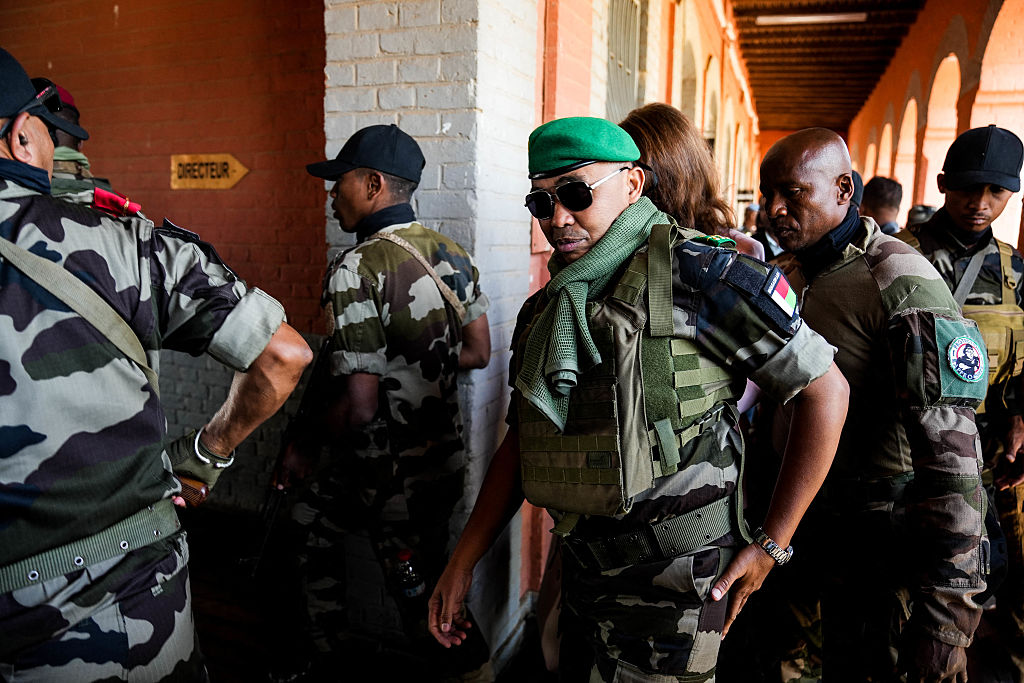When protesters filled the streets of Antananarivo and other cities across Madagascar, John J. Chin was watching closely.
He saw the anger over government corruption, daily power outages and chronic water shortages. What began in September as youth-driven rallies escalated into demands for reforms and the resignation of President Andry Rajoelina.
Chin has studied and written about coups from 1946 through 2025. The assistant teaching professor at Carnegie Mellon University leads a research team that compiles data on coup types and characteristics. His research shows that coups have declined worldwide.
“[However], coup risk remains comparatively high in Africa. Since 2020, the continent has now seen 10 successful coups across eight countries,” he wrote in an October 16 article for The Conversation Africa.
“But the military takeover in Madagascar marks only the second coup in that period to take place outside of the Sahel region, stretching from the Atlantic to the Horn of Africa — a signal that Africa’s coup problem is becoming a continental one.”
Although there are critical contextual differences between the Sahel coups and Madagascar’s uprising, all coups share a number of root causes and have similar long-term consequences.
Samir Bhattacharya, an associate fellow at Observer Research Foundation, noted the youth movement that sparked Rajoelina’s ouster, which he called a coup wrapped in a revolution.
“Political turbulence and coups are not alien to Malagasy politics,” he wrote in a November 1 essay for the foundation’s website. “Since gaining independence in 1960, the country has endured several coups and military interventions, often driven by discontent due to corruption and economic hardship.”
An elite Malagasy Army unit called CAPSAT brought Rajoelina to power in a 2009 coup, but his leadership was dogged by accusations of corruption, repression and phony democracy. The poverty rate among the population rose from 75% to 80% under Rajoelina.
Ironically, the same military unit ushered its leader, Col. Michael Randrianirina, into the position of interim president on October 14. He promised to organize a national overhaul over the next two years.
“CAPSAT’s seizure of power represents a coup d’état in line with corrective coups apparently aimed at changing the trajectory of the state,” political scientist Juvence F. Ramasy wrote in a November 3 analysis for ConstitutionNet. “The military legitimized the intervention as a solution to Rajoelina’s political, economic and social mismanagement.”
Like the coups in the Sahel, the new military ruler in Madagascar has seized the highest political office under the guise of restoring order. But the public outcry for change is different. In the Sahel, insecurity caused by rampant terrorism was the most prominent cause of the coups. In Madagascar, it was a tidal wave of anger over the economy and an unresponsive government.
Ramasy, a lecturer at the University of Toamasina in Madagascar, warned that public discontent typically grows due to the prolonged absence of democratic representation, and juntas inevitably lose legitimacy.
By stepping into politics and governance, the military is undermining the legitimacy of the transition government and trust in the military as an institution that serves the people and their chosen leaders.
Military interventions are considered a betrayal of the ethos and principles of professional forces — political neutrality and civilian control.
Coup researchers such as Chin see a dangerous cycle of successful coups inspiring other military leaders to seize and then abuse power.
“African post-coup governments are staying in power longer, which in turn emboldens coup plotters elsewhere who see a more permissive environment,” he wrote. “So even if there are limits to Africa’s ‘coup contagion,’ Madagascar likely won’t be the last domino to fall, given structural conditions on the continent.”

